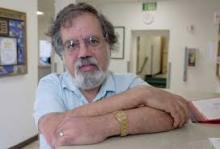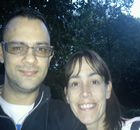 I love Dr David McCartney’s blogs. He writes so well about issues that really matter. He’s also a great guy who cares passionately about addiction recovery and recovering people. And he’s someone I always enjoy visiting when I am in the UK. [Can’t wait until the next visit!] Anyway, here’s David’s latest post on the Recovery Review blog.
I love Dr David McCartney’s blogs. He writes so well about issues that really matter. He’s also a great guy who cares passionately about addiction recovery and recovering people. And he’s someone I always enjoy visiting when I am in the UK. [Can’t wait until the next visit!] Anyway, here’s David’s latest post on the Recovery Review blog.
Therapeutic nihilism
“None of them will ever get better”, the addiction doctor said to me of her patients, “As soon as you accept that, this job gets easier.”
This caution was given to me in a packed MAT (medication assisted treatment) clinic during my visit to a different city from the one I work in now. This was many years ago and I was attempting to get an understanding of how their services worked. I don’t know exactly what was going on for that doctor, but it wasn’t good. (I surmise burnout, systemic issues, lack of resources and little experience of seeing recovery happen).

 I earlier began a series of blog posts (starting
I earlier began a series of blog posts (starting  Huseyin Djemil from the UK has this week launched a new podcast focused on recovery from addiction, which he describes as such:
Huseyin Djemil from the UK has this week launched a new podcast focused on recovery from addiction, which he describes as such:




 Here’s an interesting Wired In To Recovery blog from David McCartney from September 2013 about the importance of social relationships.
Here’s an interesting Wired In To Recovery blog from David McCartney from September 2013 about the importance of social relationships.

